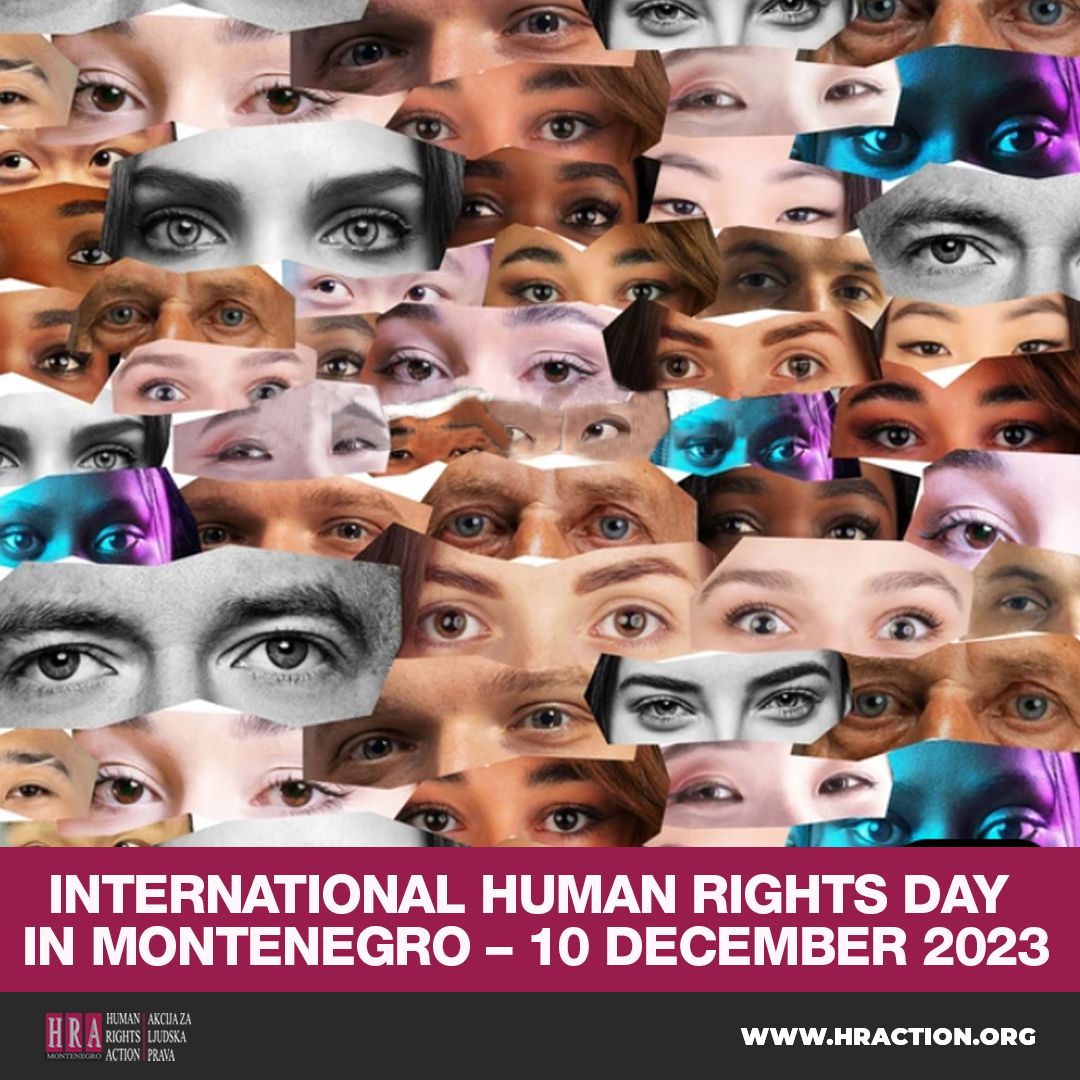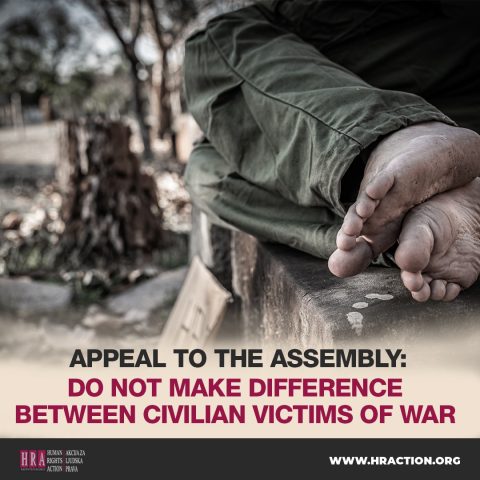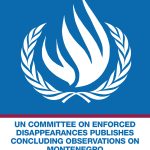
INTERNATIONAL HUMAN RIGHTS DAY IN MONTENEGRO – 10 DECEMBER 2023
10/12/2023
MERRY CHRISTMAS AND HAPPY 2024
31/12/2023THE ASSEMBLY OF MONTENEGRO SHOULD TREAT ALL CIVIL VICTIMS OF WAR EQUALLY

The Human Rights Action and the Association “Štrpci – Against Forgetting” are appealing to the members of the National Assembly of Montenegro to submit, at today’s sitting, amendments to the Draft Law on Amendments and Supplements to the Law on Veterans’ and Disability Protection which was put forward by the members of the New Serbian Democracy and the Democratic People’s Party, and to make it possible for all civilian victims of war – and not just some – to successfully exercise their long-awaited right to social support. Only in this way will Montenegro depart from the war policy of the 1990s, showing that all victims are equally important to it and that there is no room for their unjustified differentiation based on ethnic origin and religion.
The new Draft Law on Amendments and Supplements to the Law on Veterans’ and Disability Protection is identical to the amendments the Democrat MP Momo Koprivica proposed on 8 May 2023. It was proposed that the victims of the armed conflict with NATO in Montenegro be viewed as civilian victims of the war, but not those from Montenegro who suffered from armed conflicts in Croatia, Bosnia and Herzegovina or Kosovo. For this reason, the European Parliament criticised the Draft Law in its resolution of 18 October 2023 as selective, and its adoption could compromise Montenegro’s negotiations with the European Union.
The controversial Article 17a stipulates that the family of a civilian victim of war is “the family of a person who was killed, died or went missing during armed conflicts that took place during the state of war, in the territory of Montenegro”.
The condition – that the crime against civilians had to have been committed “during the state of war” – excludes the victims who died in connection with the armed conflicts of the 1990s in Croatia and Bosnia and Herzegovina because the Federal Republic of Yugoslavia had not declared a state of war at that time, as well as the victims who died in Kosovo after the war ended in June 1999.
The second cumulative condition – that the person died “in the territory of Montenegro” – also excludes the families of passengers from Montenegro who were abducted from the train in Štrpci and subsequently killed in the territory of Bosnia and Herzegovina, as well as the families of people from Montenegro who were kidnapped and went missing in Kosovo, although their families live in Montenegro and their members are Montenegrin citizens.
Conditioning the status of a civilian victim of war by a declaration of a state of war hides the fact that the Federal Republic of Yugoslavia (Serbia and Montenegro) actively and in an organised fashion provided both military and other forms of support to the representatives of the Serbian minority in the wars in Bosnia and Herzegovina and Croatia, even when it officially claimed that it was not at war. In September of this year, chief prosecutor of the United Nations International Residual Mechanism for Criminal Courts Serge Bramertz recalled e.g. that “it has been proven that the conflict in Bosnia and Herzegovina was not a civil war, but an international conflict in which tops of the political echelons of neighbouring countries participated as well”. This has been confirmed by the case law of both the Hague Tribunal and the International Court of Justice. Therefore, refusing to face the true scale of armed conflicts in the territory of former Yugoslavia even beyond the declared state of war, their consequences and victims, and doing so after no less than 30 years, constitutes at the very least an unjustified and immoral ignoring of historical facts. Also, MPs must know that civilians enjoy protection in all armed conflicts – both international and non-international, which also means that they enjoy it regardless of whether the state of war has been declared or not, and must not be considered different on that basis.
Prescribing extremely restrictive requirements for acquiring the status of a civilian victim of war would deny the right to social compensation to the family members of the victims of kidnapping in Štrpci, the family of the victim of deportation living in Montenegro, the families of victims from Montenegro who were forcibly abducted in Kosovo after the war had ended, and the families of people from Montenegro who died in the territory of Croatia as a result of the armed conflicts that had taken place over there.
We appeal to the MPs once again not to support the differentiation among the victims, and not to vote for the selective Draft Law on Amendments and Supplements to the Law on Veterans’ and Disability Protection, but to rather ensure the equal right to compensation for all families of civilian victims of the wars of the 1990s because it is the only fair thing to do. The proposed amendment is available here.
Besides the fact that the above would not make a significant difference in the financial sense, because there are only a few families of civilian victims of war, it would also send a strong message about the readiness of the authorities in Montenegro to treat all their citizens equally, and to build a democratic society based on unity and respect of human rights.
The HRA proposes that the following be given the status of civilian victims of war:
- Montenegrin citizens who were killed, died or went missing in connection with armed conflicts, if they were not members of the armed forces;
- Family members of Montenegrin citizens who were killed or died in connection with war events (bombing, stray bullets, and so on);
- Family members of missing persons who were Montenegrin citizens, if the missing persons were civilians, that is, were not members of the armed forces;
- Family members of civilians who were killed, died or went missing, who have Montenegrin citizenship, provided that they are not exercising rights on the same basis from the country of which the killed, dead or missing person was a citizen.
The right to one-off compensation should be limited to civilian victims of the wars of the 1990s.







 English
English